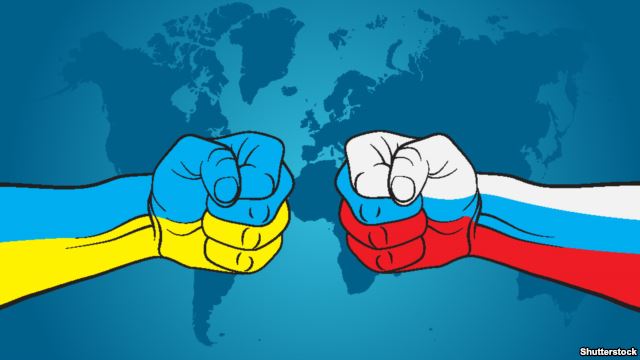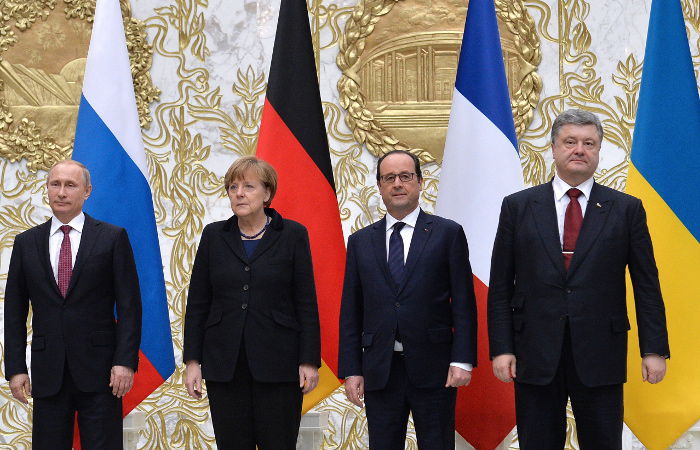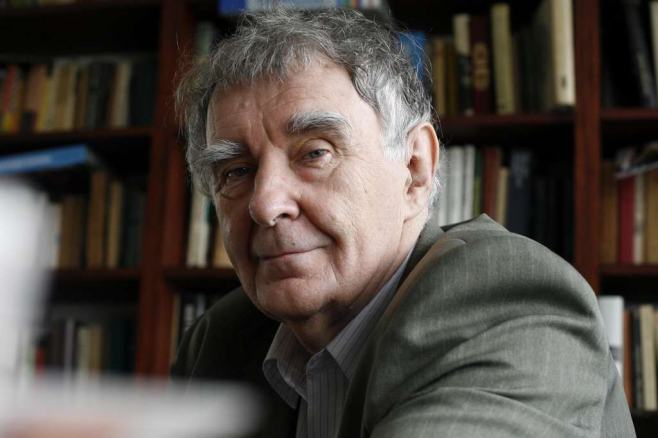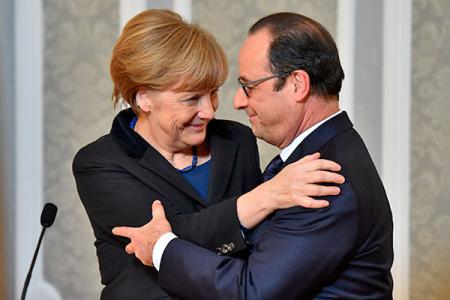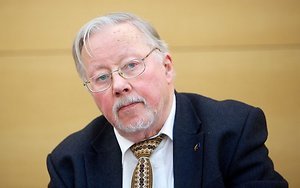Maria Shchur and Daisy Sindelar
The visit of German Chancellor Angela Merkel to Kyiv this Saturday may not bring the war to an immediate end, however, according to some observers, it might move the process of finding a solution to the conflict towards the final stage. This is why.
- Germany is a heavyweight
Throughout the conflict in Donbas, starting April, numerous western officials have visited Kyiv. Among them was Canadian Prime Minister Steven Harper, US Vice-President Joe Biden, NATO General Secretary Anders Fogh Rasmussen. However, Angela Merkel, who represented the biggest European economy, the most powerful force in European foreign policy, and who understands Eastern European realities well, as well as those of Vladimir Putin, with whom she can speak in Russian, may bring much more into the solution of the conflict than the rest of her European partners.
Merkel’s visit to Kyiv is a sign of support for Kyiv, but she speaks the language of compromise. In Riga on August 18 Merkel promised that the NATO would give an adequate response to the challenges in the East, however she excluded the possibility of a constant NATO contingent in the Baltic. Based on this, some experts predict that Merkel will come to Kyiv with an offer which would demand compromise from both parties.
British newspaper Independent, owned by a Russian magnate, assumed that the offer might consist of exchanging Crimea for the Kremlin’s promise to stop destabilizing Donbas and a discount on gas prices, which would include the compensation for the loss of Crimea. However, the downing of the Malaysian airline put an end to these rumors, the article says. The authenticity of this message was never verified, and official Kyiv has stated numerous times that Crimea is not for sale.
2. History lessons or historical coincidences?
Merkel’s visit coincides with two important historical dates. August 23 is the 75-year anniversary of the Molotov-Ribbentrop pact between the Soviet Union and Nazi Germany, which led to the division of Eastern Europe between two totalitarian regimes.
And on the next day, August 24, Ukraine celebrates its 23rd anniversary since the declaration of independence. The military parade on Independence Square, the place where Maidan fought, will be especially symbolic for the country at war.
Noting these historical coincidences, observers say that though they cannot guarantee good starting positions for Ukraine at the meeting, they are decreasing the possibility or at least a neutral attitude of the West towards the Kremlin’s pretensions.
3. The upcoming meeting between Poroshenko and Putin
After the short meeting between the Presidents of Ukraine and Russia, which took place during the 70th anniversary celebration of the Allies’ unification in Normandy, in June, before Petro Poroshenko’s inauguration, August 26 will mark the second opportunity for the two to exchange their opinions in Minsk.
Besides the Presidents of Ukraine and Russia, Eurasian leaders Nursultan Nazarbayev, President of Kazakhstan, host of the meeting, the leader of Belarus Alexandr Lukashenka, will also be in attendance, and the European Union will be represented by the High Representative for Foreign Affairs Catherine Ashton.
The agenda of this meeting is described with very broad terms: fuel, humanitarian issues and, as they put it, “broader political issues.” There is also no guarantee that a personal meeting between the Ukrainian and Russian President will happen, however one of the heads of the Administration of the Ukrainian President Valery Chaly stated that “a diplomatic roadmap is already being drawn.”
4. Military success is on Ukraine’s side
Official Kyiv is relying more on its military than its diplomatic success. The Ukrainian army managed to overcome initial lack of organization and lack of necessary financing and proved its ability to beat the pro-Russian separatists from a major part of the territory of Donbas. Currently, according to the leadership of the antiterrorist operation, they are preparing to liberate Donetsk and Luhansk.
However, information about Russian mercenaries receiving reinforcements from Russia with manpower and equipment keeps coming. The most painful thing for Kyiv is the growth of the numbers of the casualties of the conflict and their possible increase during battle for big cities.
5. Russia demonstrates signs of exhaustion
After initial euphoria from the almost bloodless acquisition of Crimea and watching the happy picture of numerous eastern citizens with “St. George’s Ribbons,” the Kremlin is now reaping the fruit of aggression in the shape of sanctions and decrease in international sympathies, especially after the crash of the Malaysian airliner, which was downed by the pro-Russian separatists.
The retreat of the Russians that led the separatists, and their replacement with local representatives of semi-criminal structures also testifies to the fact that Moscow is seeking a way out.
Russian President Vladimir Putin’s trip to Crimea became the first speech made by the Russian President that was not aired live. In his speech, Putin confirmed his theses that Russia “has all the rights to Crimea,” however, he hinted that his imperial ambitions have been temporarily satisfied.
Observers say that if Putin manages to achieve a decision to legitimize the annex of Crimea, it will be enough for him to be considered a victor, even if he did lose Ukraine.
Source: Radio Liberty
Translated by Mariya Shcherbinina

